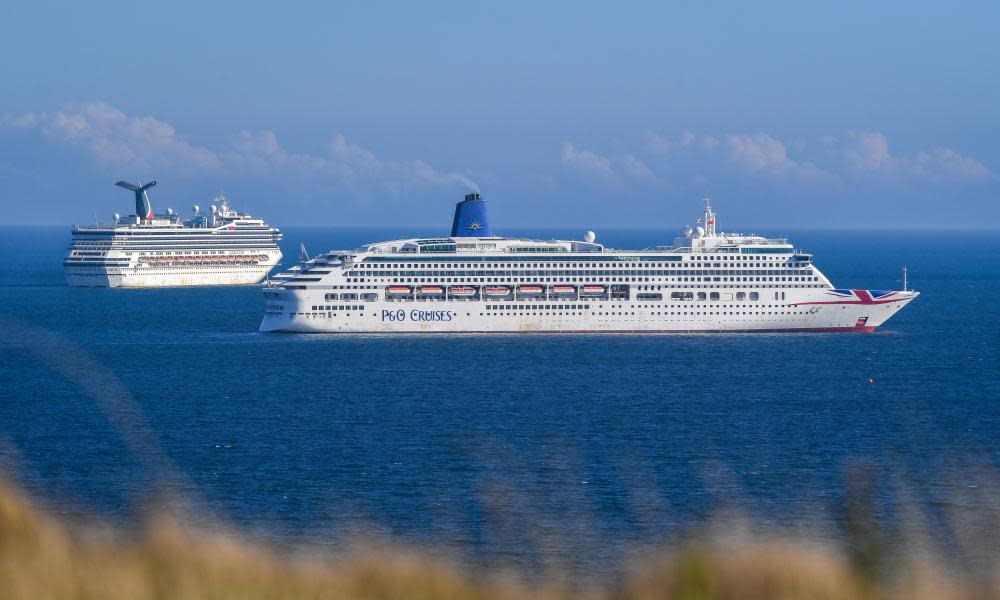Carnival cruises posts $3bn quarterly loss due to Covid

Cruise giant Carnival has announced a near $3bn (£2.3bn) quarterly loss – but signalled fairer waters ahead with its first sailing since March and bookings currently at the “higher end of historical curves” for holidays in the second half of next year.
Most of Carnival’s global fleet remains in harbour with cruises suspended due to the pandemic, but the corporation said that were signs of recovery and that demand for cruise holidays was back to 2018 levels.
It paused all operations in March, after coronavirus broke out on several of its ships and implicated Carnival in the global spread of Covid-19.
The image of cruising took a colossal blow when passengers on the coronavirus-struck Diamond Princess were confined to their cabins in the early days of the pandemic, while another Carnival boat, the Ruby Princess, is believed to have been a major factor in the spread of Covid-19 to Australia.
Having put six ships up for sale this year, Carnival now plans to accelerate the disposal of another 12 of its least efficient ships to cut capacity. Ship sales netted $940m (£730m) to offset the third-quarter losses.
A first seven-day cruise, on Carnival’s Italian subisidary, Costa, finished without reported incident at the weekend, and its German line Aida is set to resume operations this autumn.
Longer sailings and lucrative world cruises remain on hold. Carnival’s UK brands, P&O and Cunard, have repeatedly extended their “pauses” and the luxury Cunard liners’ biggest cruises have been postponed to 2022.
Carnival’s president and chief executive, Arnold Donald, said: “Our business relies solely on leisure travel, which we believe has historically proven to be far more resilient than business travel and cannot be easily replaced with video conferencing and other means of technology.”
“We continue to take aggressive action to emerge a leaner, more efficient company.”
He said that two-thirds of customers were repeat cruisers, and the lower capacity in Carnival’s fleet would leave it well positioned to take advantage of pent-up demand, which he said was shown by bookings for the second half of 2021 – comparable to the level in 2018 for late 2019.
However, Carnival said bookings for the first half of next year “reflect expectations” that cruises will not resume – and nearly half of all current 2021 bookings are discounted rebookings from 2020.
The corporation has now raised almost $12bn (£9.3bn) this year in a series of moves including share issues to boost its liquidity, despite admitting the the sector may never fully recover.


